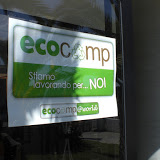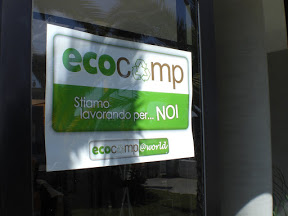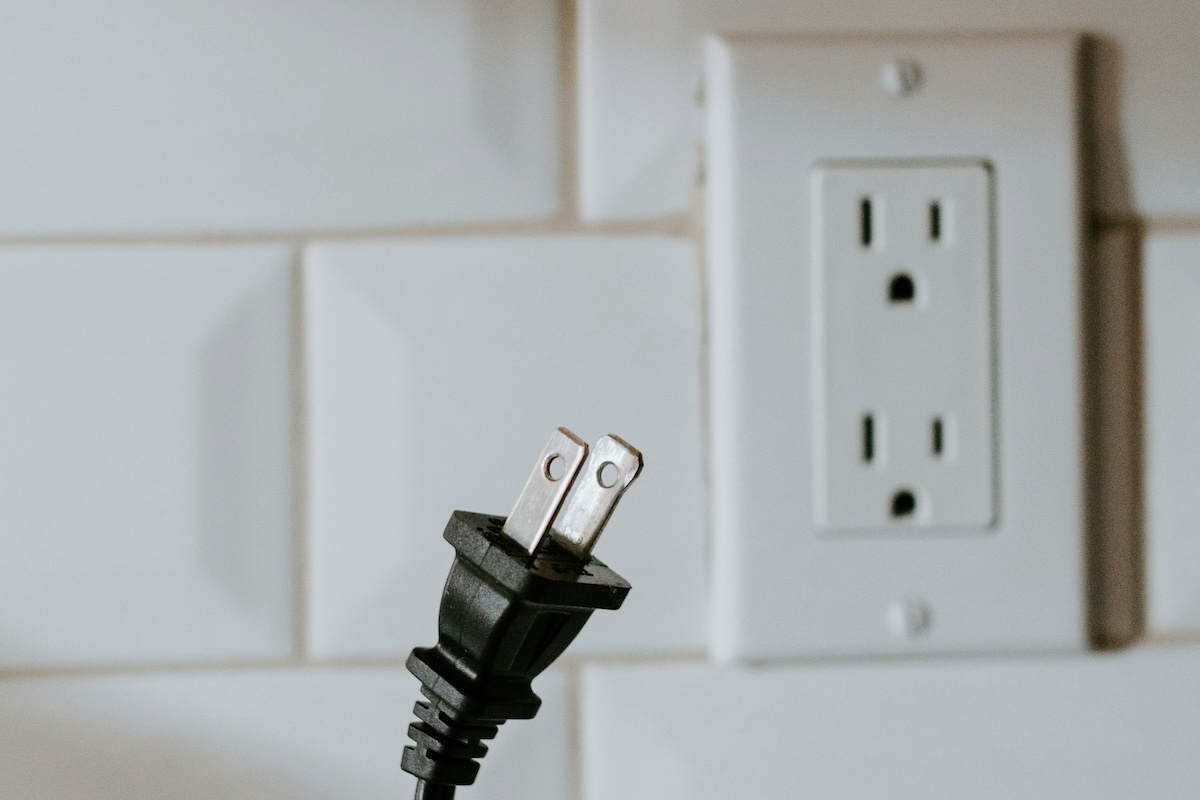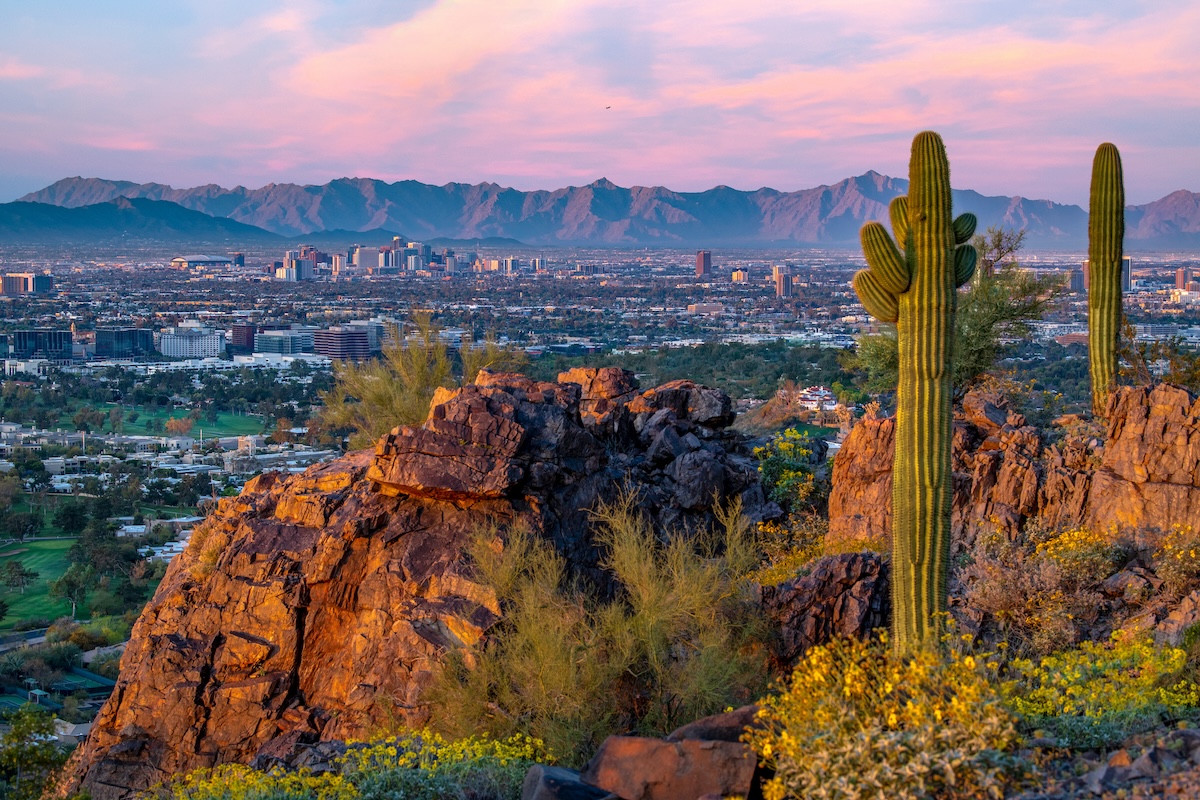Most of my afficionados know that I’ve worked in the past two months at ecoCamp, a BarCamp about the environment, ecology, sustainability and energy. The event took place yesterday 29th of March 2008 in Conversano – Italy. This post sums up what happened before, during and after the event, from an event management perspective. As a planner I learned a lot from this experience and I invite you to participate in a BarCamp close to you because it will definitely help the way you approach your career.
I organized ecoCamp with Carmen Boscolo, a fellow blogger and environmental consultant, and I will use “we” referring to me and her. We both fell in love with the BarCamp formula. Open access, no pre-scheduled sessions, interaction and the Internet sounded like a great mix. In conceptualising the event we came up few things we wanted to experiment:
– Usually BarCamps host presentations. We didn’t like that . We thought that presentations are a subtle way to control a session and kill interaction. We decided to tell our audience that we wouldn’t host any presenter but just “promoters”. We borrowed this role from Harrison Owen‘s Open Space Technology. At the beginning of ecoCamp, the promoter suggested her/his topic and got immediate feedback in terms of participation to the session. The promoter had the duty to guide and facilitate the session, collect the names of participants and manage time as well as take responsibility of the room and logistics.
– Usually BarCamps share the content, in that the organizers publish slides and materials of the presentations. We did not like that as well. We thought that the chance of having a large number of people working together could not be wasted. We were sure that the energy of the event would have been great. In order to collect and funnel that vibe we thought about creating a document, again inspired by Harrison Owen. We called the document “ecoCamp@world“. The promoter of every session was given a template to fill out during the discussion. We asked few questions:
– What have you discussed?
– Why have you discussed it?
– What were your conclusions?
The participants of the session got their name on the document, which would have been published on the official wiki, open, free and accessible.
Promotion
I have to say that in our case what worked the most were Social Media. I’ll go in depth.
– We used a wiki as the main platform where we put everything about the event. If you want to know more about starting and planning a BarCamp and its wiki, I collected few resources, you can find them here.
– We then created a blog to deliver news and updates.
– We created a badge and put the HTML code on the wiki for other bloggers to grab and paste on their platform.
– We coordinated a database of blogs on environmental subjects and sent the invite to use the badge
– We set up a “posting day”. We published a round-up article on the main blog and 10 other blogs posted about the event, trackbacking to that article.
– That same day we posted on Italian Social Media Networks clones of Digg, StumbleUpon, etc.
– We created a Twitter account for the event and inserted a Twitter badge in the ecoCamp wiki with live updates about the event.
Promotion Results:
– We generated buzz. We got free press coverage on every single local newspaper. In some instances, we didn’t even send the press release. Journalists went on the wiki and grab information. I was interviewed by radios and TVs before and during the event.
– A web TV made a documentary which is going to be online soon
Things to consider about promoting with Social Media
– time to build relationship with other bloggers
– striking content
– knowledge of Social Media Networks and key influencers there.
Location and Sponsors
Most of Barcamps do not take place because of the lack of a location. We managed to find one in two weeks. A business incubator which gave us two big rooms and free internet, plus buffet area and AV equipment.
We set the date of the event the 15th of March. Therefore we had two weeks to work on it. Our approach was: if we get no location or sponsors it means that the event has not to take place.
Three days before the event we contacted sponsors. We did not have any urgency to get buffet or gadgets but at a certain point in time we decided to give gifts to the brave participants. We managed to get on board one of the biggest Italian producer of energy saving light bulbs and photovoltaic panels. They gave us an energy saving light bulb for every estimated participant plus tons of promotional materials, block notes and pens. We got on board local producers of organic cheese, organic groceries, patisseries and cafes. We ended up with a huge buffet.
The great thing was that at no point in time we needed to give numbers or show media releases or participants profiles. The interest of sponsors was proactive and genuine from the very beginning. We told them we managed no money and that we were just intermediaries of the community.
Attendance and Statistics
The most successful BarCamps have 300-400 participants (Los Angeles, Toronto – millions of people and efficient public transportation). We are in a 20,000 inhabitants city in Southern Italy, far from transportation. The biggest city nearby is Bari (300,000 inhabitants), we got 80 people attending. We had more than 100 requests to follow online. Huge response.
The day before we set up a streaming on Ustream with 2 webcams in 2 different rooms. The promoter of every section was in charge of the streaming as well. In this way people living far away did not have to use transportation, therefore we got rid of unnecessary carbon emissions.
Experience and Feel
No one of the participants ever heard before what a BarCamp was. They left the location willing to attend another Camp immediately. We collected feedback such as “Wonderful”, “One of the greatest experiences of my life”, “I only wished we had more time to keep discussing”, “Thanks very much for putting this together”.
We registered people from 10am to 10.45am. You could tell everyone was a bit unsure of what to do and how to proceed. We then gathered in the main room and I illustrated, after thanking sponsors, what was the process.
We had two computers in two different locations. At one station, promoters could suggest their topic, give a brief description and tell their name. In the meanwhile participants looked at the projector where the sessions schedule was quickly building up. At the other station we collected participants for each session and their preferred session time for the day (morning/afternoon). We immediately had numbers and it was quite easy to generate the schedule, merge sessions or eliminate those with not enough participants. We printed out and distributed the schedule and then started off.
We did not have a coffee/lunch break, instead we left buffet accessible at all times for everyone to enjoy, respecting the session in progress .
Response was astonishing. Great, quality topics together with pragmatic and inspiring discussions took place. We had,from time to time, to “hold time and space” as Harrison Owen would suggest, indicating that there were 5 minutes to go and that the promoter needed to draw conclusions.
Conclusions
At the end of the day I saw participants cleaning up tables, collecting and recycling waste. They have been given the possibility to return, instead of wasting, unwanted sponsors’ material. It’s been of utmost importance for us to be consistent with the content of the event. We made sure every bit of ecoCamp was coherent with the theme of the event. From recycling to organic buffet, from promoting carpooling to giving energy-efficient bulbs as gadgets. The ethics of the organization contributed to set up an ethic environment, were people found themselves at ease to interact and produce something.
I saw engineers talking with farmers, lawyers engaging in discussions with media and marketing people, students sitting next to business men and accountants.
We needed to tell people that there was going to be ecoCamp2 somewhere and sometime in the future, because they simply needed to know there was going to be another meeting like that.
As a planner and a conference planner I have seen delegates leaving meetings bored and maybe drunk by the buffet. I have seen people sleeping during endless bullet point presentations and showing up just to follow a super guest star and leave the rest of the event to others.
This experience is a wake up call for those working with traditional conferences because things are changing, and quicker than we think.
 |
| ecoCamp |





